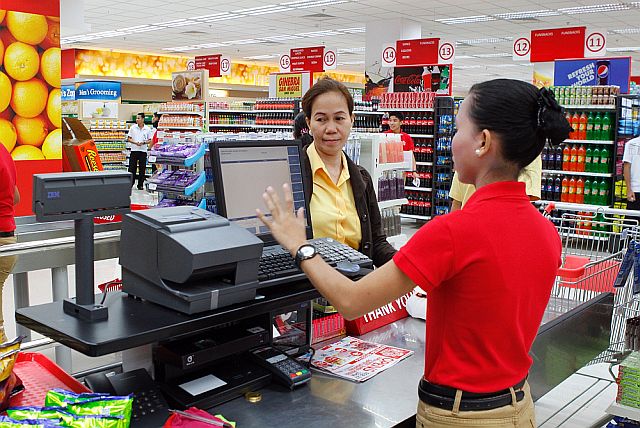
Trade Cebu province director Maria Elena Arbon assures that the “death” of traditional retail stores in the country is still a long ways off.
CDN FILE PHOTO
Traditional retail stores in the country will continue to thrive despite the growing global digital commerce industry, which has seen the closure of big brands in the United States and other developed economies in recent years.
Robert Go, Philippine Retailers Association (PRA) Cebu Chapter president, said the “death” of traditional retail stores in the Philippines would not happen in the near future despite the growing global digital commerce trend.
Go said while the greater Manila and greater Cebu areas have started to adopt online shopping practices, especially among the millennials, the end of “brick-and-mortar” stores is not imminent yet.
“Big cities will adapt faster while rural areas have a long way to go. Electronic commerce (e-commerce) in the Philippines is lagging behind because of our economic environment,” Go told Cebu Daily News in an interview yesterday.
Go cited the cost of logistics in the country as a factor, which is presently more expensive than basic commodity margins.
He, however, said that this will change as the Philippines will gain a higher per capita income.
Euromonitor Int’l
According to market research firm Euromonitor International, new digital services are seen to propel digital commerce growth.
Key trends regarding the digital consumer should remain top priority for businesses worldwide.
In its recent report titled “Global Consumers and Economies 2017,” Eurominotor states that “global consumers reported that more service-oriented purchases, including media downloads, online tickets and food service online orders, were their most frequent mobile purchases.”
Furthermore, the research firm said that the variance between devices used for a food service online order was the narrowest of all categories, with 26 percent of global consumers reporting having made such a purchase on a computer as compared with 20 percent on mobile.
Footwear and apparel are expected to drive digital commerce growth this year, with Eurominotor estimating this category to contribute around $31.4 billion in terms of absolute value globally to online sales.
E-commerce trend
The growing global e-commerce industry has hurt traditional retail stores that have not caught up to the trend, with online shopping platforms such as Amazon now having the lion’s share of the market in the US.
China’s Alibaba is also trailing behind as one of the most-used online shopping platform in the world.
“E-commerce will grow exponentially, even faster than one could imagine,” said Go.
Go said that in Seoul, South Korea, people can shop for groceries online and have them delivered at their doorstep.
Factors cited
Maria Elena Arbon, Department of Trade and Industry (DTI) Cebu provincial director, said that it would take a while before the “death” of traditional retail stores in the Philippines happens due to several factors.
Among these are the current state of the country’s internet service, including speed, presence, and cost of data plans.
She also pointed out that culturally, malls are used differently here.
“The malls right now function as spaces for networking, meet-ups, as well as to launch advocacies and inclusive development initiatives such as trade fairs. People go to the malls here for various reasons other than shopping,” she said.
Digital disruption
However, she said that the possibility of disruption in the retail sector should not be discounted, even more so now that local e-commerce and its entire ecosystem of players are growing.
Big retail stores and malls are also making their moves to play a prominent role in the e-commerce space, Arbon added.
The Philippine E-Commerce Roadmap 2016-2020 targets to contribute 25 percent to the country’s gross domestic product by 2020 from 10 percent in 2015 based on estimates made by iMetrics Asia Pacific Corporation.
In 2013, the Philippines logged $1.5 billion in e-commerce sales, and DTI’s Philippine E-Commerce Outlook for 2018 projects this figure to grow by 101.4 percent by next year.
DTI said that the country’s micro, small, and medium enterprises (MSME), which make up 99.6 percent of all businesses in the Philippines, will largely benefit from this initiative.

